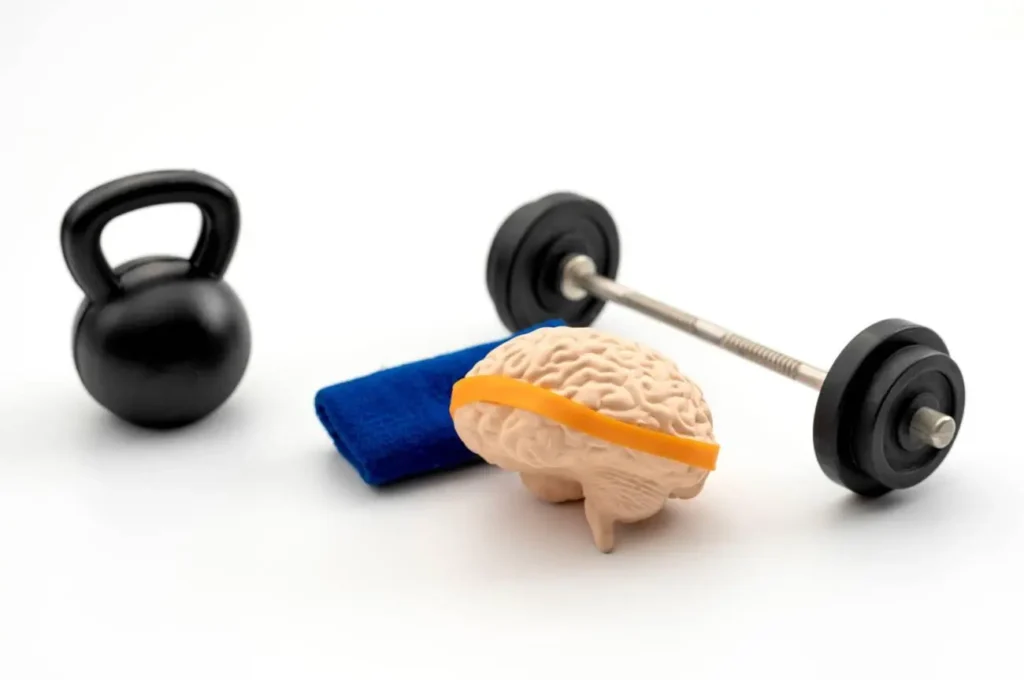Is the brain a muscle? Contrary to a popular expression, the brain is not really a muscle. Muscles are meant for movement purposes but the brain, an intricate organ that manages thought, memory and emotion among other things does not function in such a way. Nonetheless, there is a benefit of doing “exercise” for your brain. Neural connections can be strengthened, just like muscles grow with physical training. This is known as neuroplasticity. It means that we’re able to keep our brains sharp and improve cognitive skills throughout life through learning new things, solving puzzles, and mental stimulation.
What is a Muscle?
For a thorough comprehension of the query “is the brain a muscle,” we should initially comprehend about muscle. Muscle tissue is akin to the engine of our body which enables movement. It consists of special cells that can contract and expand, thereby causing bones to be pulled and generating force. The cells are organized in strings called fibers, which create muscles.
Muscles that are skeletal connect to bones and they assist in voluntary movements, like walking or picking up objects. Smooth muscles are located in organs such as the stomach for actions we do not control, like digestion. The heart is composed of a special kind called cardiac muscle which keeps contracting regularly without becoming fatigued. It’s what pumps blood throughout our body.
What is the Brain?
The following part of finding an answer to “is the brain a muscle” is deciding “what is the brain?” The brain functions as the main organ controlling the body. It performs various tasks like analyzing sensory details such as sight or sound; managing emotions; and controlling memory and learning processes.
The cerebrum, which is the biggest part of the brain, looks after thinking functions like planning and movement. The balance and body movements are handled by the cerebellum. At last, located at the base part called brainstem handles activities similar to breathing or heartbeat that happen automatically.
Brain vs. Muscle
Even though they are both very important, the things that make up the brain and muscle as well as their purposes are essentially dissimilar. The brain is formed by neurons or cells carrying information, along with supportive glial cells, fat and water; on the other hand muscles consist of special muscle fibers joined together with connecting tissues and blood vessels.
Impact of Exercise on Brain Health

Now we know “is the brain a muscle” but we are now going to take a look at the impact of exercise on the brain. Exercise has a strong effect on brain health, as many studies show its positive influence on mental abilities, mood and overall well-being of the brain. Physical activity supports the growth of new nerve cells, raises amounts of neurotrophic factors like brain-derived neurotrophic factor and boosts synaptic plasticity.
This all aids in better learning capacity, memory function and good mental state. Doing exercise regularly has a connection with less chance for getting diseases that make nerves degenerate like Alzheimer’s or Parkinson’s sicknesses. It also improves regulation of moods and ability to handle stress better. The reasons for these advantages are related to better blood flow in the brain, less inflammation, and the creation of endorphins along with other neurochemicals that help neural health and function.
But the Brain Can Be Trained, Right?
The comparison to “brain as muscle” may not be accurate, yet the concept of enhancement via usage is correct. This is what we call neuroplasticity. It refers to how the brain can change and adjust during one’s lifetime. While we learn, do stimulating activities, or make fresh memories, the connections between neurons get stronger.
These fortified bonds form a more effective network that enhances cognitive skills and general brain function. It’s similar to constructing new roads and bridges within the city of brain; these developments enable information to move faster and more smoothly.
Brain Training vs. Muscle Training
The question “is the brain a muscle” has been answered but what about brain training or muscle training? Even though both physical exercise and mental stimulation are good for general health, they affect the brain in different ways. Physical exercise is more about making muscles strong and bettering cardiovascular functions, but its direct effect on brain function is less clear.
In contrast, mental stimulation engages the brain directly. It involves activities that challenge it to learn new things, solve problems or create fresh connections between thoughts and ideas. Activities, such as acquiring fresh abilities, resolving puzzles and keeping your mind active have the potential to enhance neural networks, memory capacity and focus along with increasing creativity.
Research on Brain-Muscle Communication
Is the brain a muscle? Absolutely not. But can they work together? Studies have proven that the brain and skeletal muscles communicate with each other in two directions, controlling different body functions such as metabolism and movement. Myokines are signaling proteins released by the skeletal muscles which can affect brain functions like learning, memory or mood. They might mediate good impacts of physical exercise on the human mind.
On the other hand, inputs from our brains control how efficient our skeletal muscle is along with its motility and metabolism. This complicated interaction includes afferent and efferent neural paths, along with the liberation of molecules such as irisin and cathepsin B that can cross the blood-brain barrier.
If you still have doubts regarding the question “is the brain a muscle” just know that the brain isn’t like a muscle but it does love challenges and being active. Adding activities that stimulate your brain into everyday life helps you make use of your thinking abilities fully while keeping your mind strong in future times.


Leave a Reply